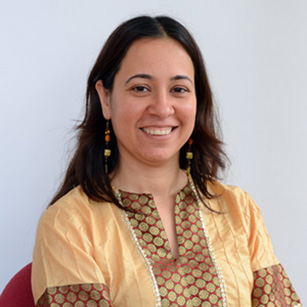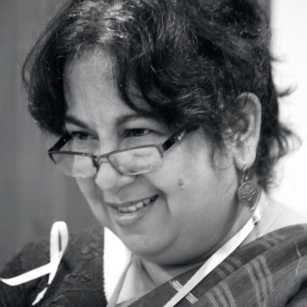Sustaining Power: Women’s struggles against contemporary backlash in South Asia (SuPWR) is a five-year ESRC-funded project that examines when, how, and why women’s power struggles in Bangladesh, India, Nepal and Pakistan succeed in retaining power and sustaining their gains against backlash.
Women in South Asia have struggled for many decades to improve their lives within their families, in their communities, for securing their livelihoods and in getting their voices heard as citizens by the state, with women’s movements being critical in advancing their rights. However, contemporary social, economic and political changes have created new and multiple forms of backlash and contestations. How do women defend their rights, and secure their gains against these regressive forces and backlash? This is the question behind our research on the strategies and mechanisms that women use to retain power and sustain gains in women’s rights.
READ MORE
Sustaining Power: Women’s struggles against contemporary backlash in South Asia (SuPWR) is a five-year ESRC-funded project that examines when, how, and why women’s power struggles in Bangladesh, India, Nepal and Pakistan succeed in retaining power and sustaining their gains against backlash.
Women in South Asia have struggled for many decades to improve their lives within their families, in their communities, for securing their livelihoods and in getting their voices heard as citizens by the state, with women’s movements being critical in advancing their rights. However, contemporary social, economic and political changes have created new and multiple forms of backlash and contestations. How do women defend their rights, and secure their gains against these regressive forces and backlash? This is the question behind our research on the strategies and mechanisms that women use to retain power and sustain gains in women’s rights.
Visit the SuPWR website
Led by IDS, we are working with the BRAC Institute of Governance and Development (Bangladesh), CARE (Nepal), IDEAS (Pakistan) and ISST (India) together with women’s movements and struggles themselves. Our central research question is When, how, and why do women’s power struggles succeed in retaining power and sustaining their gains against backlash?
South Asia provides a valuable opportunity to investigate women’s struggles. The region has witnessed rapid and large changes over the last decade, including urbanisation, rising employment precarity, new electoral laws and regime changes, shifts in social norms, and the spread of digital technology. We aim to examine how these changes create new and multiple forms of backlash; and how women’s struggles for power are variously challenged, opened up or are closed down by these changes.
We are interested in unravelling the similarities and differences in processes and strategies used by different women’s movements to retain power in the face of backlash; and in women’s own experiences and interpretations of their struggles as these evolve and adapt over time.
As part of this, we want to assess what works to defend women’s rights and explain why some struggles are more successful than others in sustaining gains. We think that success of women’s struggles depends on a) the types of strategies they use to counter different types of backlash; b) the ways in which struggles include voices and perspectives of different groups of women; and c) the ways in which struggles connect to other movements and groups across local, regional and national levels.
Our unique approach and methodology
We will select 16 cases of women’s struggles in four countries that represent the largest populations of South Asia: Bangladesh, India, Nepal and Pakistan. Within each country, we will select on-going and contentious cases of struggle in one of four arenas within which gains in women’s rights are being sought: family, community, market and the state.
This research will use a variety of methods including:
- identifying and analysing the types of backlash created by processes of contemporary change;
- mapping critical players and what shapes their motivations for action;
- tracing the struggles, nature and trajectory of each movement to counter backlash – through oral history methods, reflective and participatory techniques, qualitative interviews and archival research;
- undertaking comparative analysis to compare how different movements may have triggered, galvanised or been strengthened by power struggles across different arenas; and
- identifying and systematising which combinations of mechanisms and strategies work to defend women’s rights in South Asia and beyond.
This is a collaborative research project that draws together a multi-disciplinary research team with deep in-country and conceptual expertise on women’s rights and contemporary power struggles in South Asia. We have brought together an exciting mix of well-established and early career researchers and activists across countries and institutions, who will interact regularly through mentor teams, training workshops, on-site guidance and learning opportunities for analysis, writing and presentations.
We will privilege members of women’s movements own understandings of their power and struggles, and seek to deliver impact by building their capacity and co-constructing knowledge using reflective processes. Ultimately, we hope that the learning that will be shared across cases and across countries, will give hope and strength as well as share practical ideas for strategies and mechanisms to women’s struggles across the region.
Read less










